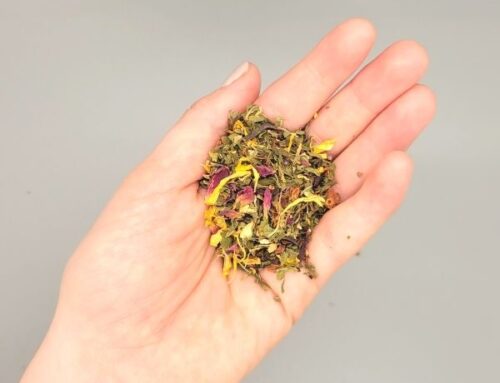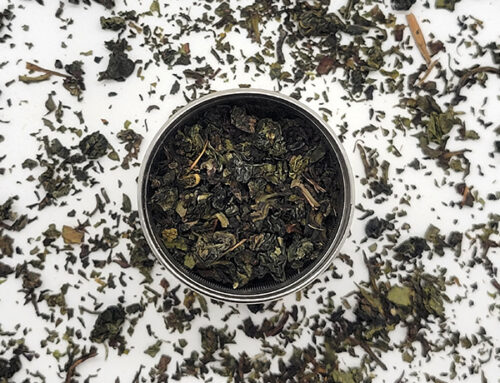5 Different Ways to Manage and Relieve Stress in Your Daily Life
 With all of the hardships our world is currently facing today, it is no wonder that over three-quarters of Americans admit to feeling stressed, and this number is only growing. To learn some simple ways to cope with stress (that won’t add to your already long list of things to do), try incorporating at least one of these simple stress-relieving techniques into your daily life.
With all of the hardships our world is currently facing today, it is no wonder that over three-quarters of Americans admit to feeling stressed, and this number is only growing. To learn some simple ways to cope with stress (that won’t add to your already long list of things to do), try incorporating at least one of these simple stress-relieving techniques into your daily life.
By taking care of our bodies and minds, we can better handle the stresses of everyday life and lead richer, happier lives. Keep reading to learn 5 different ways to manage and relieve stress in your daily life!
- Breathe
We can’t stress this enough. Whether you’re meditating or simply taking a deep breath and focusing on your abdominal muscles and breathing through your nose, remember that “inhaling stimulates the brain to think about good things; exhaling stimulates the brain to think about bad things.”
When we are feeling extremely stressed or perhaps even anxious, our brain will enter the “fight or flight” mode where our breathing becomes elevated. During this time, cortisol and stress hormones can heighten our blood pressure as well as wear us out. If we are already feeling stress, piling more stress on top of it will only make matters worse. By bringing awareness to your breath, you are gaining control over one of your body’s most important functions: bringing oxygen to the body and expelling its counterpart, carbon dioxide.
Not sure how to relieve stress by breathing? Try this simple breathing exercise:
- Find a safe space where you can have this personal moment.
- Whether you are laying down on your back or sitting at a desk, softly close your eyes and try to relax your forehead and keep your tongue separated from the top of your mouth.
- Now take your attention to your breathing. Begin by softly inhaling through your nose and pause at the top of the inhale.
- In this moment, appreciate this pause in time.
- Slow let your lips peel open, and allow your exhale to expel from your mouth.
- Slowly close your lips, and pause before beginning your inhale again.
This simple exercise is great because you can modify it to your own needs. If all you have is thirty seconds, no problem! If you have a few minutes, fill this time with your breath and notice how your spirit will change from start to finish. Key things to note: there are many different types of breathing exercises and they affect each of us differently. Try experimenting with both soft and deep breathing, laying down or sitting up, or creating more audible exhales. There is no right or wrong. Whatever helps you feel more relaxed, will help you relieve stress and continue on with your day.
Added bonuses: try experimenting with your sense of smell. Try experimenting with essential oils like lavender, eucalyptus, sandalwood, etc. Just like perfume, find a scent that you like and helps you to feel more relaxed. Not into essential oils? Brew your favorite cup of soothing tea and let the steam lift up into your nostrils as you practice your breathing. (See our article “How to Steep Tea Mindfully”)
- Physical Activity
Staying active is one of the best things that you can do to help relieve stress. Why? Science! A study published in 2012 found that exercising triggers the body’s production of endorphins, which help reduce the feelings of pain associated with stress. A 2020 study revealed that participants that did not exercise regularly have the risk of stress symptoms more than 75% higher than those that do exercise regularly (https://www.ncbi.nlm.nih.gov/pmc/articles/PMC7704428/). Exercise will stimulate the hormones noradrenaline and adrenaline, which help to control stress and give you a boost of energy. Plus, staying active is one of the most effective ways to get rid of pent-up energy. If you’re finding it difficult to squeeze in the time for exercise (not to mention the cost of gym memberships!), don’t worry. Simple things like taking a short walk during your lunch hour, or taking the stairs instead of the elevator are great ways to incorporate some activity into your daily life.
- Listening to Music
Music has many benefits and is great for managing stress. There are many scientifically proven ways that music can have an impact on the body including the release of endorphins, blood pressure control and heart rate, as well as other functions. Just take a look at some of these benefits:
Music can help stimulate the body’s production of endorphins, which help relieve stress and provide a sense of euphoria (and yes, it feels good!). Researchers have made attempts to compare the effect of listening to music with taking antidepressants and in many cases, the feeling of euphoria was comparable. (http://www.pacificcollege.edu/academics/academic-programs/health-science-programs/online-physicianassistant)
Listening to music can help relieve stress by giving us a break from our daily routine. There have been many studies done on the power of music and its positive effects on stress levels. A study by Dr. David Calkins at the University of California, Santa Barbara, found that people who listened to African ethnic music for ten minutes after completing a 50 minute brain scan reported less stress and less negative mood and agreed with statements like “I am more optimistic about my life” than those who did not.
Added benefit? Start dancing! Music and dance go hand-in-hand, and what better way to relieve stress than to groove out to your favorite tunes?!
- Practice Mindfulness
Did you know that mindfulness techniques help calm down the amygdala part in your brain that triggers stress responses?
Mindfulness is the basic human ability to be fully present, aware of where we are and what we’re doing, and not overly reactive or overwhelmed by what’s going on around us.
Incorporating mindfulness practices into your daily life can help you take a moment to decide how to react to stressors. If your mind is able to separate a thought as being stressful, it will be easier for you to distance yourself from the stressor.
Try practicing mindfulness in the non-obvious ways like:
When you’re eating a meal, fully focus on the flavors and textures of your food. Try to eat slowly and appreciate each bite of food. Learn how to manage your emotions. Take a moment before reacting to something and ask yourself “Is this really worth getting worked up over?” This can help prevent you from externalizing your stress by internalizing it (i.e. making yourself angry) about an event that is going on outside of your control.
Mindfulness can help you and your brain take a different approach to stress by being able to feel more present in the moment and thinking about stress in a more positive way.
- Spend more time outside
Our bodies are meant to be touched by sunlight. Spending as little as twenty minutes a day outside, can help you get the minimum of Vitamin D required for your body to function. Added bonus? Getting outside is also a great way to relieve stress!
Spending time outside doesn’t have to mean roughing it out in the wilderness on some mountain… it can be as simple as taking a walk around your neighborhood or gardening!
Let’s think about the alternative situation: staying indoors 24/7:
Sunlight helps our body’s natural clock to stay in rhythm, and this is something that no artificial light can provide. If possible, spending time outside in the morning is best for optimizing your inner clock and sleep patterns. In doing so, you are actually helping to reduce stressors like insomnia!
Everybody feels stressed. You are certainly not alone! Try incorporating these 5 things into your daily routine to help feel more present in the moment, in better control of your emotions, and more relaxed!
- Breathing
- Physical Activity
- Listening to Music
- Mindfulness
- Spending Time Outdoors
There are so many ways to relieve stress (and different techniques work for different people, so experiment!), and we hope that these 5 simple tips will help you throughout your day!






